We recently connected with Hannah Upham and have shared our conversation below.
Hannah, looking forward to hearing all of your stories today. To kick things off, we’d love to hear about things you or your brand do that diverge from the industry standard.
I am a sustainable florist/flower farmer in an industry that grows flowers with pesticides, uses an extreme amount of floral foam and other products that are completely non-sustainable and not environmentally friendly. Usually, weddings and events are a one-off and there is a lot of waste.
My mission is to use sustainable practices and products in my growing and designing. We use and re-use, thrift, take back and rent many of our vases, containers and forms for weddings and events. We use organic practices in growing our flowers and be sure to use water wise practices. We are introducing passive solar heating into our greenhouses. We compost plant waste. We use alternatives to floral foam for our structured floral pieces.
If a couple wants a specific design that is generally used with floral foam, we play with the design or play with flowers until we can achieve the same look sustainably.
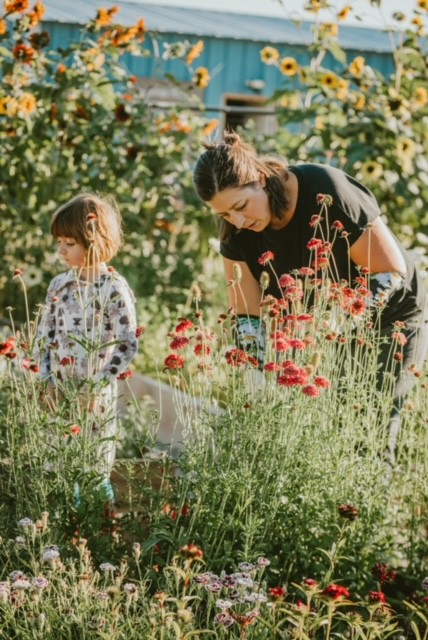
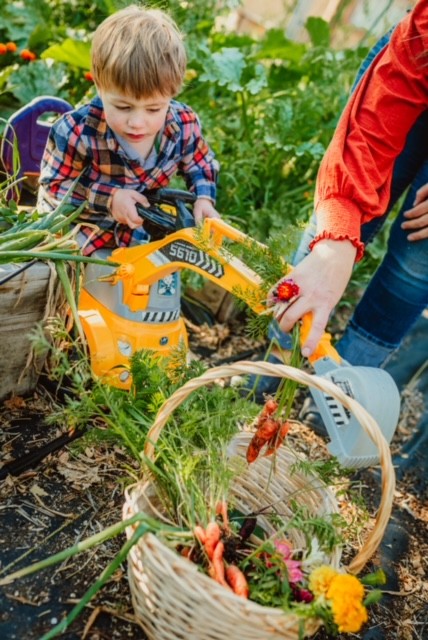
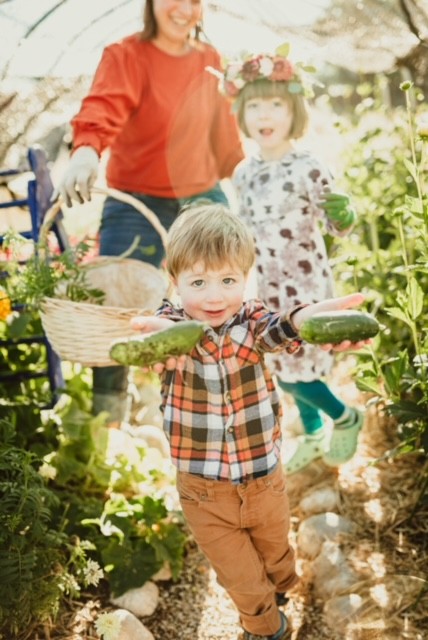
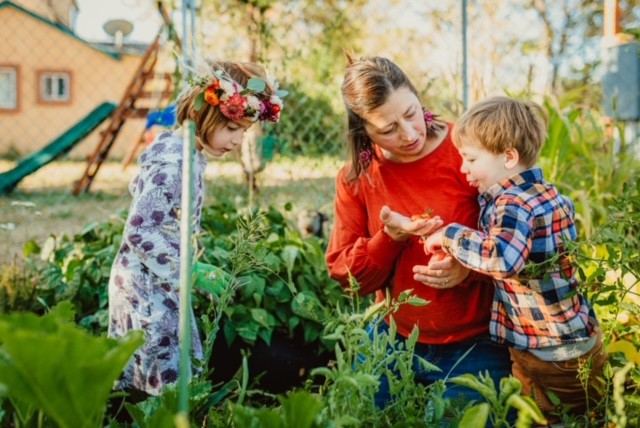
Hannah, love having you share your insights with us. Before we ask you more questions, maybe you can take a moment to introduce yourself to our readers who might have missed our earlier conversations?
When I was in college in the 1990’s I was training for a sport called biathlon (cross country skiing and rifle shooting. I was on the jr. national team and training in Marquette, MI where it was cold a gray most of the winter. After a bad race where I froze my lungs and extremities. I decided I was done and my Olympic dreams were over. I stopped training and got pretty depressed. I needed something. I found a job working at a garden center/grower greenhouse. It was early March and had the only warmth and light in town. I was hooked. Since then I have been a landscaper, landscape designer. manager of a greenhouse/florist, have gone on to a masters degree in counseling where I have several specialties, including horticultural and art therapy.
When the pandemic hit, I needed something to do with my two small kids. So, I started flower farming and took on a few weddings, (elopements mostly). I found the gardening grounding in such and unpredictable time and it helped me to teach my children about life cycles, gardening, insects, and gave us all a fun place to go when we couldn’t go anywhere. This is part of my own horticultural therapy. Since having kids, I have put my counseling on hold, but intend to hold groups and workshops in the gardens to bring this same grounding to others in the community. This counseling education helps me to really hear what my customers needs are for their events and weddings.
As a florist as well as a flower farmer, 2021 was a huge year. The weddings that were cancelled and postponed because of the pandemic the year before, on top of the weddings of the year, made for a very busy wedding season. I live in an area in the mountains of Colorado where outdoor and rustic barns are the big venues in the area. Weddings doubled with with the continuing issues in supply chains, so growing my own flowers (and food) were more important than ever. The flower industry took a huge hit in 2020 and continues to be a challenge getting specific flowers and supplies. With the war in Ukraine, this year will also be a challenge for florists with increased prices due to gas prices, lack of product and broken supply chains. Ukraine is a huge producer of flowers and for for Europe and beyond and its lack of product will stifle supplies globally.
When working with wedding and events, above all, we try to be sustainable, and reasonable with our prices. We are very honest about how we are being affected by global pricing. We try to educate couples on how important sustainability is in our industry. We try to work with and get to know our customers on a personal level to involve those pieces in their special day.
I am most proud of the positive environmental impact I having by growing flowers, using sustainable methods ingrowing and designs, educating others by providing workshops and special events for the community, donating time an materials to schools and events locally.
Are there any resources you wish you knew about earlier in your creative journey?
I wish I knew more sustainable methods when I first started in the flower industry. The floral industry is hugely wasteful and littered with practices that are unsustainable. Much of the waste is not composted, there is a huge floral foam issue. So many of the shipped flowers are shipped in plastic, Flowers growing in gas-guzzling greenhouses and are shipped all over the world creating more gas emmissions. The flowers grown are covered in pesticides. Local and small growers are popping up all of the US right now to supplement and supply local florists. Local Products from small growers/farms generally last longer and don’t use as many pesticides and non-sustainable methods.
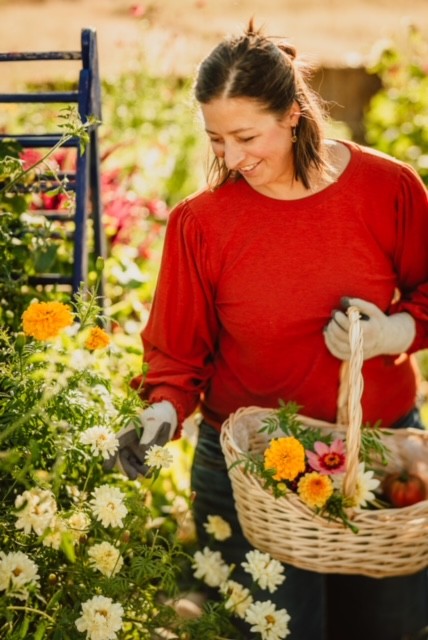
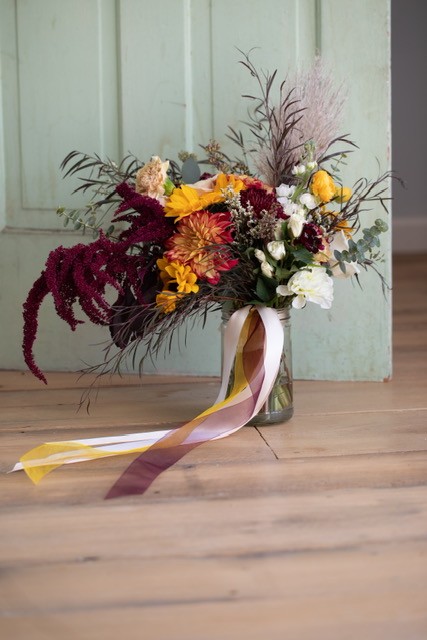
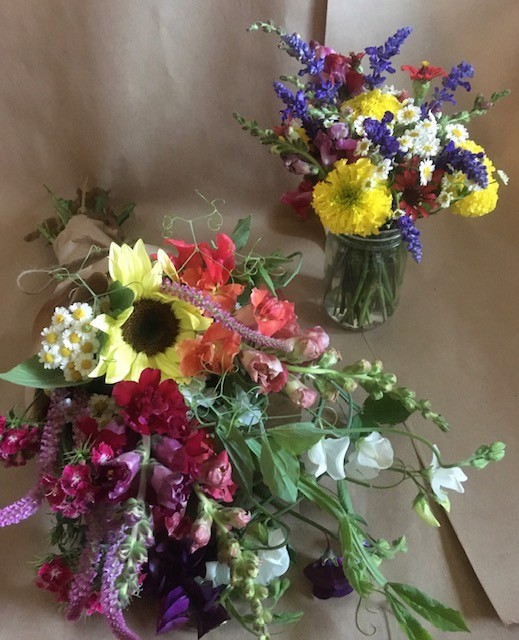
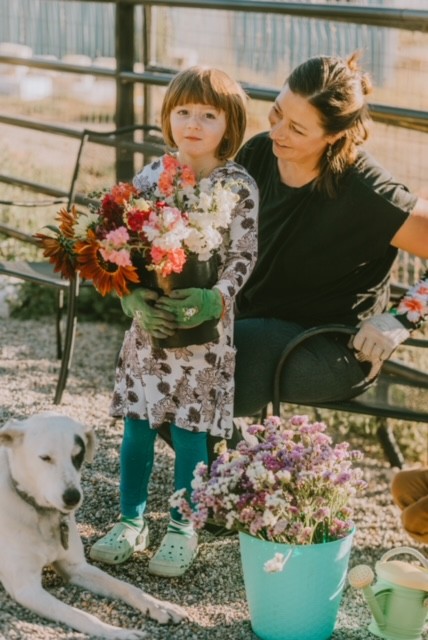
How’d you build such a strong reputation within your market?
Honesty, transparency and education. These are there major parts to connecting with my clients and growing my business. Because I take the flower from seed to wedding/event, I know how much work goes in to growing each flower and why they cost as much as they do. I use high quality flowers and as local as possible to create my designs and try not to stray from that mission. Sometimes, that means losing wedding bids, Sometimes sustainability can take more time for design and organic can cost more, but it is worth it in the end to not stray from building a business that also does not hurt the environment.
Contact Info:
- Website: www.phytologyflowers.com
- Instagram: @phytologyflowers
- Facebook: @phytologyflowers
Image Credits
Ivy Bencheck Photography Paper Posey Photography


